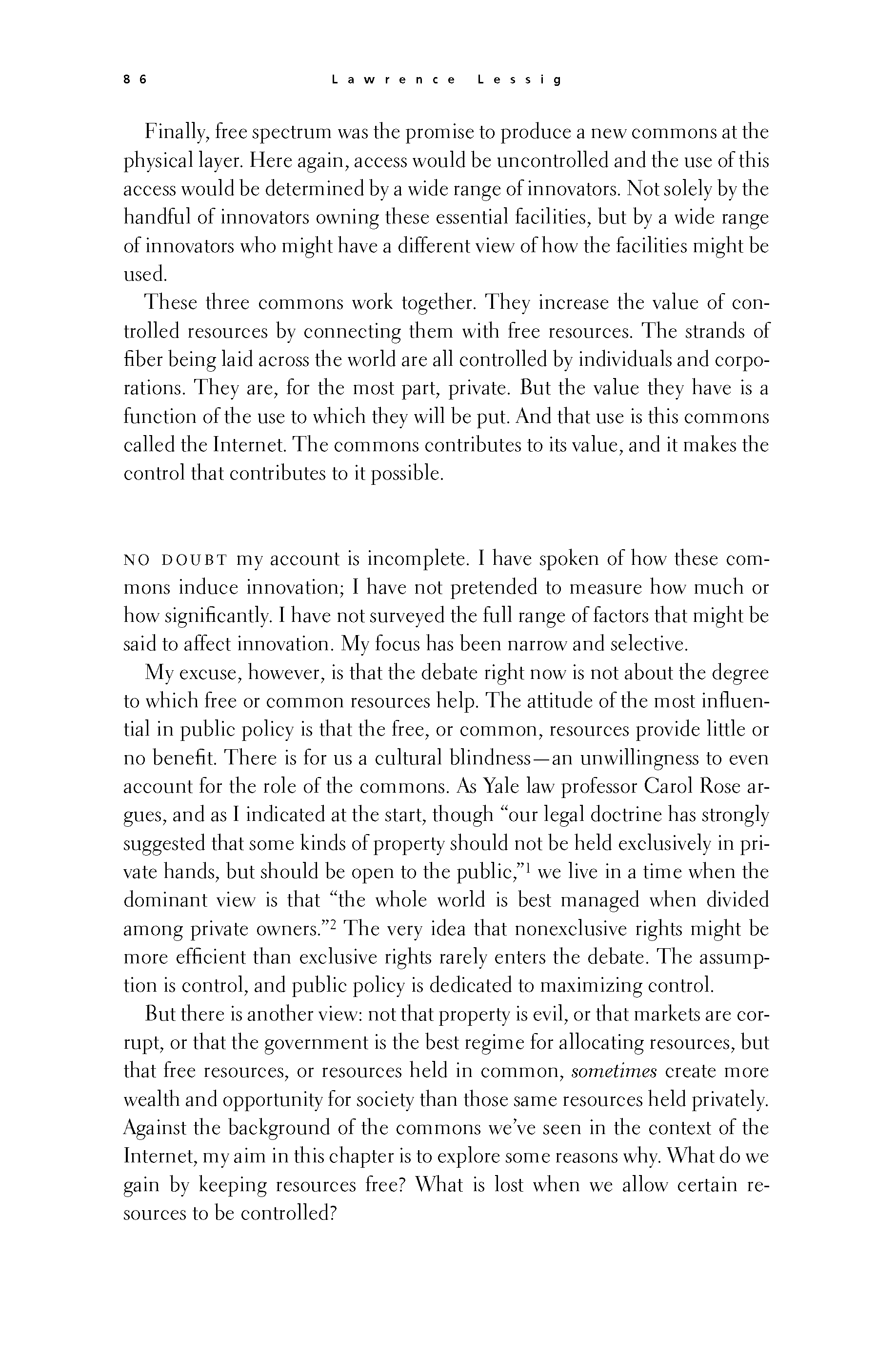 p085 _
-chap- _
toc-1 _
p086w _
toc-2 _
+chap+ _
p087
p085 _
-chap- _
toc-1 _
p086w _
toc-2 _
+chap+ _
p087
Finally, free spectrum was the promise to produce a new commons at the
physical layer. Here again, access would be uncontrolled and the use of this
access would be determined by a wide range of innovators. Not solely by the
handful of innovators owning these essential facilities, but by a wide range
of innovators who might have a different view of how the facilities might be
used.
These three commons work together. They increase the value of con-
trolled resources by connecting them with free resources. The strands of
fiber being laid across the world are all controlled by individuals and corpo-
rations. They are, for the most part, private. But the value they have is a
function of the use to which they will be put. And that use is this commons
called the Internet. The commons contributes to its value, and it makes the
control that contributes to it possible.
///\\\
No doubt my account is incomplete. I have spoken of how these com-
mons induce innovation; I have not pretended to measure how much or
how significantly. I have not surveyed the full range of factors that might be
said to affect innovation. My focus has been narrow and selective.
My excuse, however, is that the debate right now is not about the degree
to which free or common resources help. The attitude of the most influen-
tial in public policy is that the free, or common, resources provide little or
no benefit. There is for us a cultural blindness -- an unwillingness to even
account for the role of the commons. As Yale law professor Carol Rose ar-
gues, and as I indicated at the start, though "our legal doctrine has strongly
suggested that some kinds of property should not be held exclusively in pri-
vate hands, but should be open to the public,"[6-1] we live in a time when the
dominant view is that "the whole world is best managed when divided
among private owners."[6-2] The very idea that nonexclusive rights might be
more efficient than exclusive rights rarely enters the debate. The assump-
tion is control, and public policy is dedicated to maximizing control.
But there is another view: not that property is evil, or that markets are cor-
rupt, or that the government is the best regime for allocating resources, but
that free resources, or resources held in common, _sometimes_ create more
wealth and opportunity for society than those same resources held privately.
Against the background of the commons we've seen in the context of the
Internet, my aim in this chapter is to explore some reasons why. What do we
gain by keeping resources free? What is lost when we allow certain re-
sources to be controlled?
[[86]]
p085 _
-chap- _
toc-1 _
p086w _
toc-2 _
+chap+ _
p087